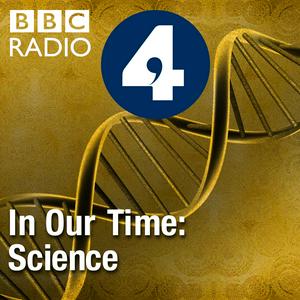Pollination
Since plants have to mate and produce offspring while rooted to the spot, they have to be pollinated – by wind, water, or animals – most commonly insects. They use a surprising array of tricks to attract pollinators: striking colours, iridescent light effects, and enticing scents, to name but a few. Insects, on the other hand, do not seek to pollinate plants – they are looking for food; so plants make sure it’s worth their while. Insects are also remarkably sophisticated in their ability to find, recognise and find their way inside flowers. So pollination has evolved as a complex dance between plants and pollinators that is essential for life on earth to continue. With Beverley Glover, Director of the Cambridge University Botanic GardenJane Memmott, Professor of Ecology at the University of BristolAndLars Chittka, Professor of Sensory and Behavioural Ecology at Queen Mary, University of London.Producer: Eliane GlaserReading list:Stephen L Buchmann and Gary Paul Nabhan, The Forgotten Pollinators (Island Press, 1997)Lars Chittka, The Mind of a Bee (Princeton University Press, 2023)Steven Falk, Field Guide to the Bees of Britain and Ireland (British Wildlife Publishing, 2015)Francis S. Gilbert (illustrated by Steven J. Falk), Hoverflies: Naturalists' Handbooks vol. 5 (Pelagic Publishing, 2015)Dave Goulson, A Sting in the Tale: My Adventures with Bumblebees (Vintage, 2014)Edwige Moyroud and Beverley J. Glover, ‘The evolution of diverse floral morphologies’ (Current Biology vol 11, 2017)Jeff Ollerton, Birds and Flowers: An Intimate 50 Million Year Relationship (Pelagic Publishing, 2024)
Alan E. Stubbs and Steven J. Falk, British Hoverflies (British Entomological & Natural History Society, 2002)Timothy Walker, Pollination: The Enduring Relationship Between Plant and Pollinator (Princeton University Press, 2020)In Our Time is a BBC Studios Audio Production

